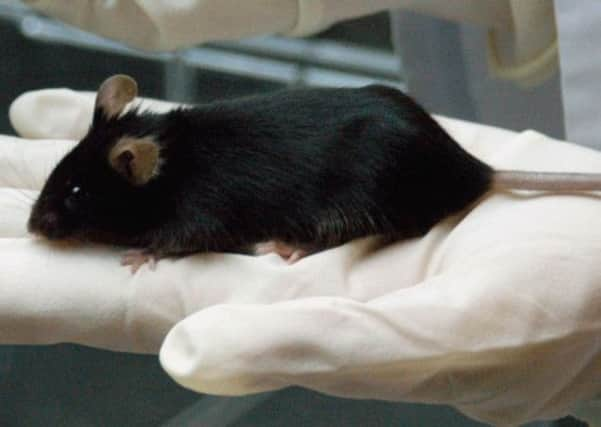Scottish scientist’s success in organ regeneration


It is hoped that the discovery could pave the way for future treatments in humans to revive declining organs including the heart and brain.
The researchers, from the Medical Research Council (MRC) Centre for Regenerative Medicine at Edinburgh University, succeeded in rejuvenating the thymus in ageing mice by manipulating the genetics of the animals.
Advertisement
Hide AdAdvertisement
Hide AdThe thymus, which sits near the heart, is a vital part of the immune system and produces T-cells to fight off infection.
But by the age of 70 the thymus shrinks in size dramatically, making the immune system less effective and meaning people lose the ability to fight off infections such as flu as they get older.
To regenerate the thymus, the Edinburgh team targeted the protein FOXN1, which helps to control how important genes in the thymus are switched on.
They used genetically modified mice to allow them to increase levels of the protein using chemicals.
By doing this, they managed to instruct the immature cells in the thymus - similar to stem cells - to rebuild the organ in the older mice.
The regenerated thymus was more than twice the size of the organ in the mice who were not treated.
The researchers, writing in the journal Development, said the regenerated thymus was very similar to one in younger mice in terms of the structure and its genes.
They also found that its function was restored, with the mice receiving the treatment beginning to make more of the T-cells important for fighting infection.
Advertisement
Hide AdAdvertisement
Hide AdBut they said they did not yet know if it resulted in the immune system of the older mice being strengthened.
Professor Clare Blackburn, from the MRC Centre for Regenerative Medicine, who led the research, said: “By targeting a single protein, we have been able to almost completely reverse age-related shrinking of the thymus.
“Our results suggest that targeting the same pathway in humans may improve thymus function and therefore boost immunity in elderly patients, or those with a suppressed immune system.
“However, before we test this in humans we need to carry out more work to make sure the process can be tightly controlled.”
Dr Rob Buckle, Head of Regenerative Medicine at the MRC, added: “One of the key goals in regenerative medicine is harnessing the body’s own repair mechanisms and manipulating these in a controlled way to treat disease.
“This interesting study suggests that organ regeneration in a mammal can be directed by manipulation of a single protein, which is likely to have broad implications for other areas of regenerative biology.”
Previous attempts by researchers to regenerate the thymus have involved using sex hormones, but these have resulted in only temporary recovery of size and function of the organ.
In the latest study the recovery of the thymus was sustainable, but the researchers said more work was needed to ensure there were no unintended consequences of increasing FOXN1.
Advertisement
Hide AdAdvertisement
Hide AdAny attempt to adapt the treatment for use in humans would need to be carefully controlled due to the risk that the immune system could go into overdrive and attack the body.
But those working in the field of regenerative medicine hope that similar technology could eventually be used to repair other parts of the body, including the heart or brain which also suffer due to the impact of ageing.
It is hoped such treatments could succeed by targeting a single gene, which would simplify the process.